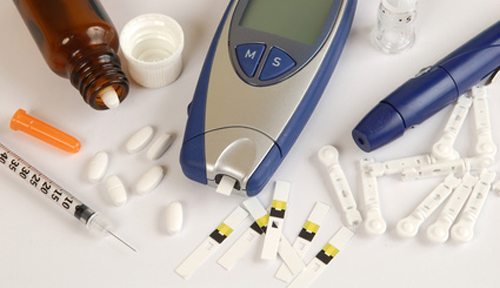
For diabetes sufferers, it’s not just effective medications that are necessary, but effective self-management. The challenge with diabetes, both type 1 and type 2, is not necessarily that the medications we have available today are just not good enough. The problem is, the disease has to be managed constantly, from the moment you wake up to the moment you go to sleep, every day of your life with no breaks.
Medication dosages must constantly change depending on what and how much you eat, how much you exercise and a myriad of other factors that most of us never consciously pay attention to. Many diabetes patients manage their conditions quite well, but it’s a war of attrition, and at some point blood sugar levels will go out of range, which could even be life threatening.
Take the case of Mark Andrews, diagnosed with type I diabetes when he was 9 years old. Andrews is not your average guy who only periodically checks on his health. He’s the tight end for the NFL’s Baltimore Ravens, so his livelihood depends on near perfect control of his blood sugar levels, or as perfect as he can possibly maintain them.
Yet, even for a professional football player, at one point or another, levels get way out of range, and for Andrews that once almost cost him his life. Back in 2014 as a college football player, Andrews’ roommate found him on his bed staring vacantly at the ceiling, motionless. Not responding, his roommate stuffed fruit chews in his mouth and Andrews quickly regained consciousness.
Like many sufferers, Andrews wears an insulin pump on his hip which helps him manage his condition automatically. He only takes it off when playing football. It was only in 2016 when the world’s first artificial pancreas was approved by the FDA, developed and manufactured by Medtronic (NYSE:MDT). The demand for the product was so high that Medtronic could not supply enough of them at first due to manufacturing bottlenecks, but has since met demand.
The artificial pancreas may yet see some more improvement with a new insulin undergoing human trials this year, a concentrated ultra-rapid acting insulin aiming to compete with Novo Nordisk’s (NYSE:NVO) NovoRapid and Eli Lilly’s (NYSE:LLY) Humalog, which are rapid-acting but not ultra-concentrated. Until now, nobody has succeeded in developing an ultra-concentrated rapid-acting insulin, the goal of these being to enable insulin pumps to be as small and unnoticeable as possible. The new insulin was developed by private pharma firm Arecor in partnership with diabetes charity JDRF. Trials are set to begin this year.
But an artificial pancreas isn’t for everyone. Carrying around a pump attached to your hip at all times may suit some lifestyles, but others find it impractical, or simply unaffordable. A simpler solution could lay in a smartphone app.
This week, a company founded in 2016 known as Ascensia Diabetes Care, an outgrowth of Bayer (PNK:BAYRY) and Panasonic (PNK:PCRFY), released a new version of its Contour Diabetes app that includes the ability to recognize 14 different patterns and use 11 testing plans. The patterns are based on behavioral science models and the fact that diabetes patients need actionable information and behavioral skills in order to improve their self-management habits. By charting patterns in blood glucose levels that patients may not at first recognize, the goal of the app is to train users on how to more effectively manage the disease long term, rather than manage it for them outright like an artificial pancreas would. Even the artificial pancreas, though, needs calibration and can make mistakes.
Yet another solution on the diabetes management horizon may end up coming from an oral reformulation of insulin. Even if you wear an artificial pancreas, insulin must still be injected, and this is quite uncomfortable for many sufferers. Oramed Pharmaceuticals (NASDAQ:ORMP) is working on the world’s first oral insulin pill that is now undergoing a 90-day Phase II trial to see if it can lower long term blood glucose levels consistent with what would be needed for approval. The trial should complete later this year, and markets will soon know if oral insulin – a diabetes Holy Grail that has been sought for a century – is possible.
Finally, a more futuristic option that could obviate the need for type I diabetes self-management is an immune therapy coming out of biotech firm Caladrius Biosciences (NASDAQ:CLBS) called CLBS03. It is currently recruiting 113 patients for a Phase II study with results due by March of next year. The idea behind the treatment is that since type I diabetes is an autoimmune disorder, if immune cells can be rebalanced and taught not to attack the pancreas shortly after diagnosis when a patient still has functional pancreatic beta cells, then the organ can be spared before the disease fully sets in. The treatment takes a patient’s own immune cells called T-regs, which autoimmune sufferers have too few of compared to healthy patients, multiplies them, and reintroduces them, with the goal of rebalancing the system. It is of course a long way from getting to market if it ever does, but it is certainly a hopeful option that would make self-management a thing of the past for type I diabetes sufferers, if successful.




